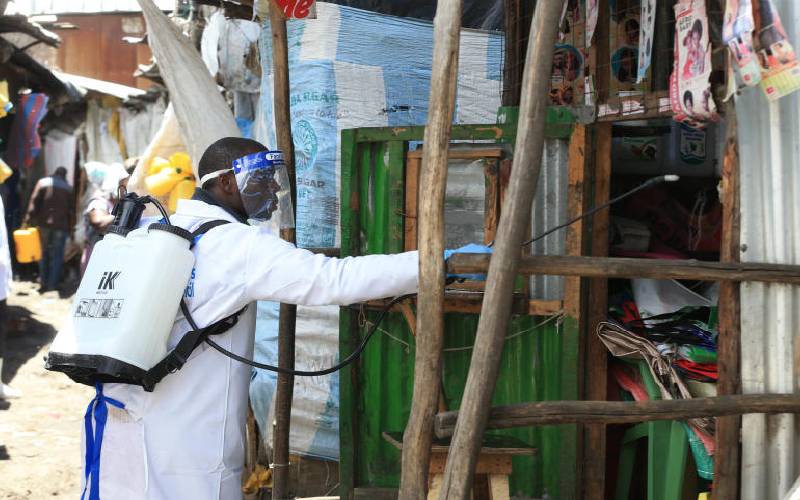×
The Standard e-Paper
Fearless, Trusted News

An official from the Public Health Department disinfects a stall at Gikomba Market in Nairobi over the weekend in an effort to contain the spread of the coronavirus in the capital. [Stafford Ondego, Standard]
President Uhuru Kenyatta’s financial armoury is fast running out of weapons to combat the coronavirus pandemic.